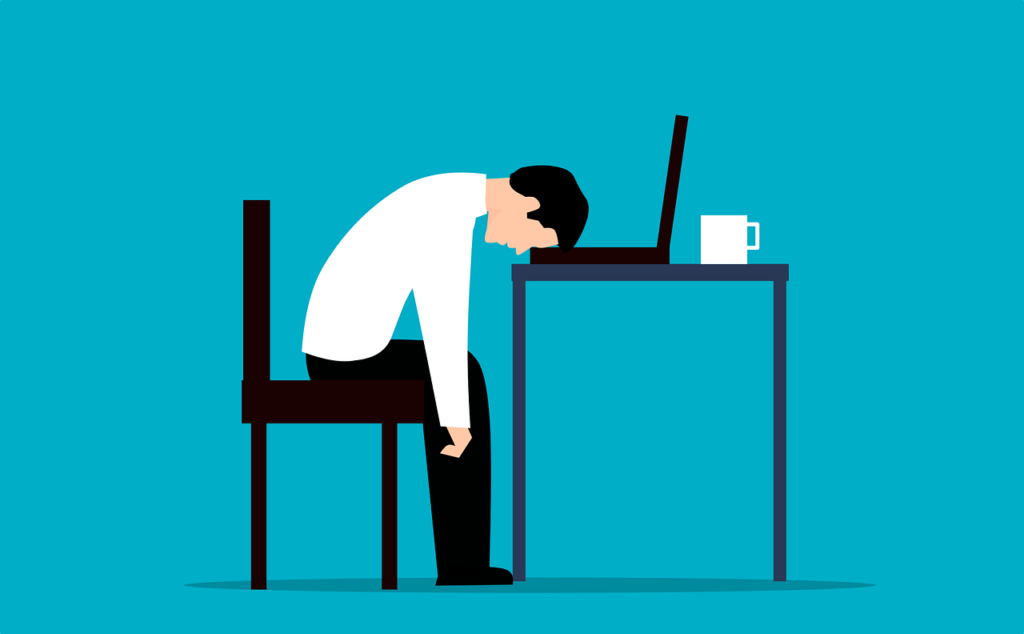
Exhaustion 5e, Why is it so Bad?
Exhaustion is a condition in DND that applies to Player characters that represent the environmental struggles of temperature, starvation, and rest. This sounds like a super useful tool for facilitating exploration. In theory, Exhaustion is a separate health pool that can be used by the dungeon master to show the danger of the environment and make it an obstacle to overcome. Unfortunately, there are several reasons why Exhaustion falls on its face as a mechanic.
Exhaustion 5e is too debilitating
| Level | Effect |
|---|---|
| 1 | Disadvantage on ability checks |
| 2 | Speed halved |
| 3 | Disadvantage on attack rolls and saving throws |
| 4 | Hit point maximum halved |
| 5 | Speed reduced to 0 |
| 6 | Death |
With there being only six levels of Exhaustion there are not enough degrees of Exhaustion to turn the dial on. The first two levels of Exhaustion are fine to have and can be a great trial to make routine combat hard. Around 3-4 is where the effects become too much of an effect. Exhaustion should be something that mixes with other problems but not be the primary threat. Only fool would willingly risk their life with five levels of exhaustion. While some campaigns that focus on survival would enjoy this, other campaigns will not find exhaustion important. At 3 points of exhaustion, fighting becomes super difficult for martial characters and players’ progress will be halted.
Exhaustion Takes too long to recover
A subclass that comes to my mind is heavily associated with Exhaustion. The Berserker Barbarian gets a bonus action attack for the duration of rage but gets a point of Exhaustion when done. I have played a Berserker and it sucks to be out of commission after a fight. I never wanted to get more than 1 point of Exhaustion because it would take 2 days for the Exhaustion to heal. Lesser Restoration does not heal Exhaustion so you can’t cheat the time it takes to heal. This is unfortunate because in campaigns where time is of the essence you become a massive liability. The Ranger has a high-level ability that lets them remove exhaustion on a short rest. To me, these design choices reflect that Exhaustion is supposed to be an impactful mechanic that is hard to get around but Dungeon Masters have a hard time controlling these dials.
Exhaustion is Hard to Remember
Since Dungeon Masters rarely use exhaustion it is hard to remember all the different tiers of exhaustion. Going to a phone or having to pick up the books to check the condition makes it unfun. In order to have a mechanic implemented effectively it should be remembered by the whole table. A table of six levels is not that hard to remember but the fact that people don’t remember it means it is a forgettable and bad mechanic.
One Dnds Solution
The development team of Dungeons and Dragons wants Exhaustion to be relevant. It can certainly elevate the exploration pillar and add a new element to the game. They redesigned exhaustion with the following changes.
EXHAUSTED [CONDITION]
While Exhausted (known in older books as Exhaustion), you experience the following effects:
Levels of Exhaustion. This Condition is cumulative. Each time you receive it, you gain 1 level of exhaustion. You die if your exhaustion level exceeds 10.
d20 Rolls Affected. When you make a d20 Test, you subtract your exhaustion level from the d20 roll.
Spell Save DCs Affected. Subtract your exhaustion level from the Spell save DC of any Spell you cast.
Ending the Condition. Finishing a Long Rest removes 1 of your levels of exhaustion. When your exhaustion level reaches 0, you are no longer Exhausted.
This solution makes Exhaustion way easier to remember. Another huge thing is that it affects spellcasters and martial characters equally. The effect gives the dungeon Master more control dials, and the effects have equal margins of pain. Using these new rules will improve your game in my opinion however there is one change I would make.
EXHAUSTED [CONDITION]
While Exhausted (known in older books as Exhaustion), you experience the following effects:
Levels of Exhaustion. This Condition is cumulative. Each time you receive it, you gain 1 level of exhaustion. You die if your exhaustion level exceeds 10.
d20 Rolls Affected. When you make a d20 Test, you subtract your exhaustion level from the d20 roll.
Spell Save DCs Affected. Subtract your exhaustion level from the Spell save DC of any Spell you cast.
Ending the Condition. Finishing a Long Rest removes All of your levels of exhaustion. When your exhaustion level reaches 0, you are no longer Exhausted.
Doing this change allows the Dungeon Master to change the exhaust variable without changing the time variable. Of course, this all depends on the type of game you want to run. I just believe this change gives more control to the Dungeon Master to use the mechanic in the way they want.
Benefits of Using Exhaustion
Exhaustion can be cleverly used to change things in the game. If you want strength to be more important you can use strength as a buffer against Exhaustion. This would allow exhaustion to be used more often and make strength more of an important stat. Overall I think The game developers are correct for wanting to use Exhaustion in their adventures. It makes wilderness exploration more important and gives rangers a more unique identity from the rouge. Overall making the exploration pillar work is an endeavor that will greatly benefit your game.